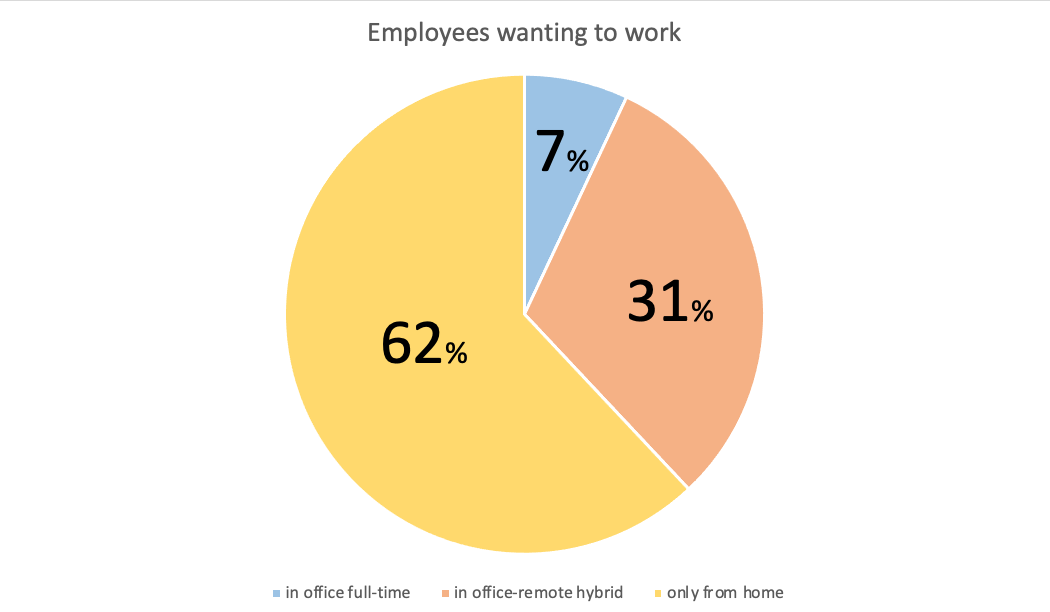Is the Budding World of Hybrid Work Culture here to Stay?
Remote Working isn't an estimation for the future; rather, it has already arrived for the majority of professional salaried employees. With evidently rising levels of unemployment, dissatisfaction among employees, and job hopping due to COVID-19, India has been exposed to a rather quick shift in mindset. Freelancing has crept its way into being a sufficient solution to all of the problems faced by the majority of workers and is estimated to grow to $20 to $30 billion in India alone, owing to its versatile and independent nature.
With such a quick shift that was neither planned nor expected, there were bound to be some gaps. For employers who had previously been working traditionally, or in-office, and had their entire business running offline, the office closures were big reminders for catching up with the latest technology. The employees, too, had to learn to use it, and get acquainted with it, lest they run out of business.
Surprisingly,
in spite of the issues pertaining to creating a self-accountability
to work and lack of personal touch, efficiency did not crumble. The
productivity was, in fact, higher than before, - probably owing to
the time saved in transit, and being able to manage work flexibly
instead of having to devote fixed hours in a restricted environment.
It comes as no surprise that people are willing and persistent to
retain this liberty, or at the very least, some essence of it.

|
|
Attribution Link: Young entrepreneur photo created by pressfoto - www.freepik.com |
How are the Market Leaders viewing it?
There
seems to be an assumed consensus regarding a flexible hybrid system
where the CEO of Twitter, Jack Dorsey, has gone as far as to offer
his employees the option of working remotely “forever”.
He believes that employees should be able to work from wherever they
do their best thinking and creating. Even the CEO of Google, Sundar
Pichai, has offered his employees the option of working remotely or
in-office, with an additional option to work in combination, or as we
have been calling it - a Hybrid Work System.
However,
there are several arguments in this matter, where the opposition
consisting of the CEO of Netflix, Goldman Sachs and JP Morgan, all
strongly maintain that not being able to get together in person is a
pure negative, considering remote work nothing more than an
aberration.
Now,
to get a view from the employees’ point of view-
The
CEO of Gravity Payments, Dan Price’s twitter poll asking
employees to state their preference on this matter went as follows-

Employees’ preference, owing to a number of reasons, is clearly toppling in favour of a system that accepts remote work as real work.

AttributionLink-Home office photo created by freepik - www.freepik.com
New Working Policies for a New Work Culture
For
employers, due to the responsibility of ensuring their employees’
health and safety, work-from-home poses certain challenges. For
instance, will they have to assess every employee’s screen and
ensure they have a suitable working space in their homes? Will their
failure to do so reflect badly on them or the whole system of remote
work?
And
with all employees working on domestic internet connections, hackers
will enjoy easier access to the company’s data. To avoid this,
each device that is being used for work will at least have to get a
cybersecurity check.
Employees or Freelancers?
During the pandemic, with an exclusively remote workforce, employers, in a way, experienced the essence of having to work with freelancers; strictly online contact, and no feeling of permanence.
And they seemed to like it.
Employers are now fairly familiar with the required technology and have a newer, more open mindset, leading to a significant increase in the percentage of acceptance for freelancers. It also makes it easier for the company to have a more diverse workplace, since people can be hired to work from anywhere across the globe.
During
the pandemic, with an exclusively remote workforce, employers, in a
way, experienced the essence of having to work with freelancers;
strictly online contact, and no feeling of permanence.
According to research, most managers want to have in-office employees, simply to maintain team performance. However, they also want to provide their employees with the flexibility that they desire. In a survey by Gallup, it was found that an astounding 54% of employees that are currently working exclusively from home said they would look for another job if the option for remote work was withdrawn. 38% of hybrid workers said the same.
For this reason, it seems unlikely that Hybrid Work Culture would be going anywhere in the near future.
https://startuptalky.com/freelancing-future-india/
https://www.gallup.com/workplace/390632/future-hybrid-work-key-questions-answered-data.aspx
Choose Color Scheme